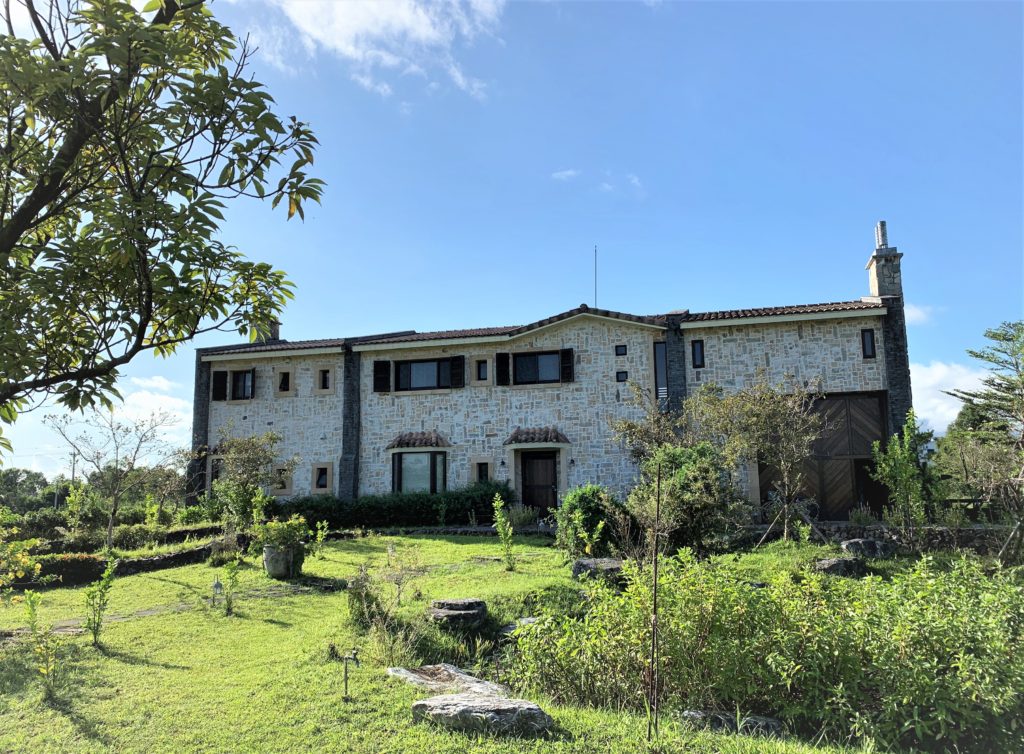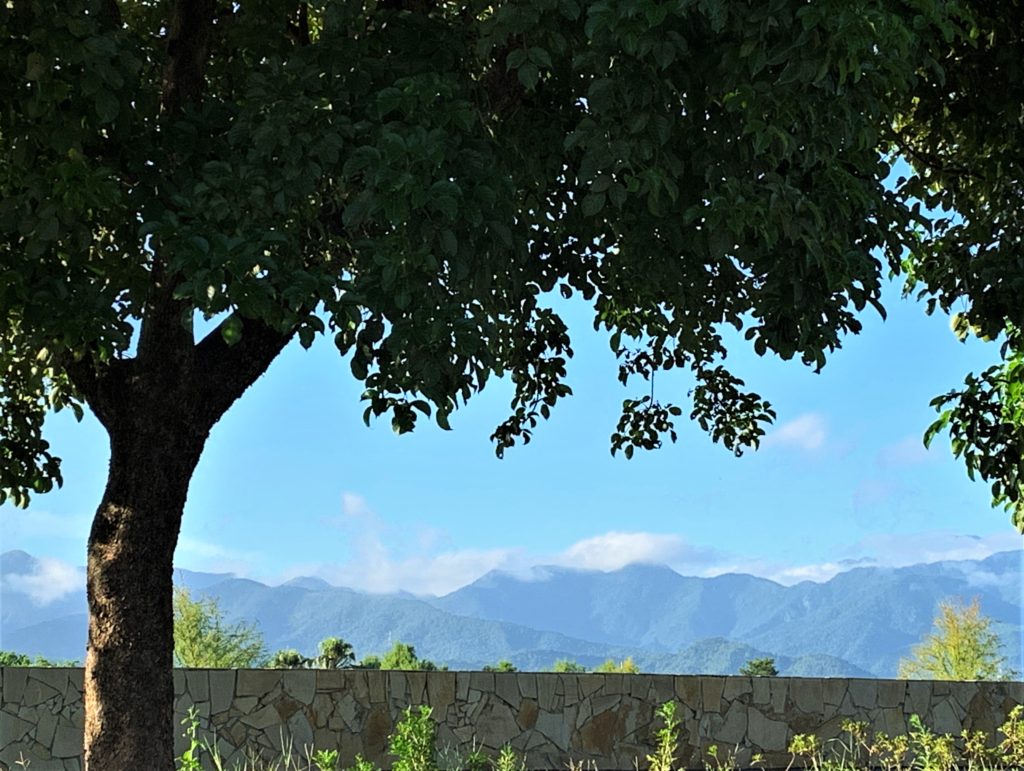An estuary is a partially enclosed, coastal water body where freshwater from rivers and streams mixes with salt water from the ocean. Estuaries, and their surrounding lands, are places of transition from land to sea. Although influenced by the tides, they are protected from the full force of ocean waves, winds and storms by land forms such as barrier islands or peninsulas.
Estuarine environments are among the most productive on earth, creating more organic matter each year than comparably-sized areas of forest, grassland or agricultural land. The sheltered waters of estuaries also support unique communities of plants and animals specially adapted for life at the margin of the sea.[1]
Since childhood, I always knew that my curiosity and my desire for learning would one day lead me to a strange land. I didn’t know where and how. But, with trepidation, I anticipated the journey for years.
I was exposed to Western cultures at an early age because of my father’s work. Stern but clear sounds of German langue, coming out of LPs, floated in our house. Among dad’s coffee-table books was an album of photos from various theatrical productions of Faust. To a child’s eyes those dramatic images—painted faces, grotesque gestures and surrealistic stage sets were shocking yet intriguing. One of dad’s best friend was a German professor in physics.[2] Tall and skinny, he had very sharp nose. His voice was raspy. Since he didn’t speak any Chinese, he rarely addressed us kids. However, from time to time, a glimpse of sweetness would shine through his big eyes, gently reaching out to me. Still, I was very shy around him. Based on these first impressions, I believed that all things Western were big and dramatic.
Then, I attended a high school established with the support of American missionaries and known for its English language training. Liberation movement of the 1970s was going strong in America—strong enough that its influence was felt in martial-law-era Taiwan. We sang “Kumbaya,” “Blowin’ in the Wind,” and “This Land is Your Land” at school. Guitar accompaniment was always a welcomed addition to the merrymaking. My idea of Western cultures became softer and more uplifting. Yet, I was years away from understanding the regional and national traditions of Western countries.
When I finally crossed the ocean to start a new chapter in my life, I was overwhelmed. I realized the difference between tasting a few drops of saltwater and being immersed in it. The first chance I had; I flew home to my normalcy.
Yet, as I returned, my “normalcy” wasn’t so normal anymore. Having been in the open water, everything in the small pond seemed restricted. Although I was still a firm believer of the superiority of Chinese culture, I became aware of merits of other traditions.
Simply put: Life in a small pond was sweet and calm, while life in the ocean could be challenging and, even dangerous. But it was a wonderland out there, full of colorful things and interesting creatures. And, it’s free of boundary.
Gradually, I adjusted to my new environments. I learned the languages, the traditions and the ways of life wherever I went. Overtime, I knew how to protect myself in difficult situations and was able to blend in. My career interests took me further and further away from my traditions, while my longing for my roots grew deeper and deeper. If it were possible to swim back and forth between the pond and the ocean, I would have gladly done it.
After passing my candidacy exams and spending half a year in Italy, I moved to Illinois to study with John Wustman and to write my dissertation. Original researches in historical musicology are time-consuming. In the predawn era of World Wide Web, such work often involved prearranged visits to various libraries: deciphering manuscripts; hand copying detailed information with pencils. . .. Depending on the subject matter, it could take over a decade to complete the work with a respectable result.
Having been pursuing my advanced degrees for several years, I was eager to complete the final steps. However, I knew that there was no way to rush through the work. I also knew that I might not be able to cross the boarders of the United States until the completion of the work: I would be able to obtain extensions on my visa as long as I maintained good academic standing. If I leaved the country for any reason, I would have to apply for a new visa. And, most likely, I would be denied reentry.
The question “Do you intent to live in the United States permanently?” was notoriously troublesome. Answering “Yes” would mean a denial of any temporary visa. For someone like me who had lived in the U. S. for some time and established roots, answering “No” would often be considered lying and still resulted in a rejection. I prepared myself for a long absence from Taiwan and focused on my research and study.
My years in Illinois turned out to be one of the happiest periods in my life. I spent many daytime hours at the music library, with all my research materials spreading on one of the tables near the reference section. Gradually, I became friends with the librarians and some graduate students in musicology and choral conducting. Since we each specialized in a particular area of study, we didn’t talk much about research. A genuine camaraderie was formed on our common interests in music and learning. For the first time in my life, I fit in. After dinner, I hung out with piano students in the practice rooms in the attics of Smith Hall. After a few hours, a group of us would make a final run to the coffee shop before going home or returning to the dark rooms to make more noises.
UIUC attracts large number of international students every year. There were many Taiwanese students in music while I was there, some major in piano, some in music education and theory. Despite slight age differences, we all got along well. Our conversations often involved with news from home. We celebrated Chinese holidays together. Whenever someone went back to Taiwan during school breaks, treats from home would be shared with cheers and laughter. Not being able to return home, I treasured the opportunity to remain connected to my roots.
On another level, those years were difficult for me mentally. Single-mindedly I pursued a dream of working with music and words. By the time I move to Champaign-Urbana, I knew that I had pushed myself too far to stop let alone to turn back. Gaining footing in the States would provide me a slight chance to continue the journey. I was very aware of the hugely competitive job market for classical musicians either in the academic fields or in performance. At the same time, my chances of becoming a permanent resident depended almost completely on my employments and/or professional achievement. I knew that there was no guarantee that I would survive. I took every step gingerly but with full commitment. I maintained a good attitude because there was no other choice.
Like a little fish approaching the mouth of a river, facing the immensity of the ocean, I needed protection and encouragement. Champaign-Urbana provided me the perfect environment to gain deeper understanding of Western cultural while maintaining some indirect connections to my roots. It was a nurturing place for young scholars and musicians. Its cosmopolitan atmosphere allowed me the comfort that I needed.
I left the city and the campus in 1995. Since then, I paid a few brief visits while in the area. Despite all the new developments, it still felt like home. I remain in touch with many friends whom I met there. Sweet memories. . .
[1] United States Environmental Protection Agency, “Basic Information about Estuaries,” accessed December 11, 2019, https://www.epa.gov/nep/basic-information-about-estuaries.
[2]沃爾夫岡·克洛爾/Wiki in Chinese; Wolfgang_Kroll/Wiki in German






